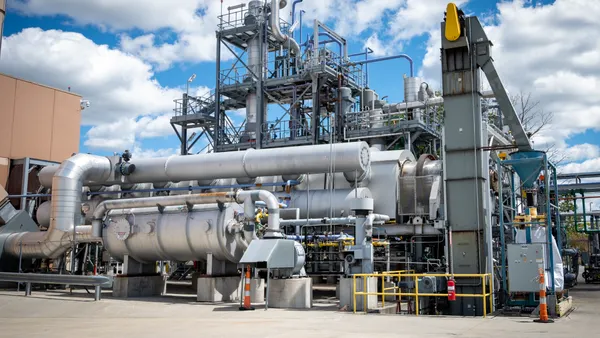Rhode Island’s House and Senate advanced bills late last week, as the legislative session wrapped up, that have potential implications for certain plastic containers.
The Senate on Thursday passed SB14, which would block many food service establishments from using disposable polystyrene foam containers beginning in 2025. The bill has been transmitted to the governor.
Numerous states have taken actions restricting expanded polystyrene, including a law signed by Oregon’s governor this year.
Rhode Island’s House passed Senate Resolution 671, which calls for creating a commission with state lawmakers, environmental advocates and food, beverage and alcohol industry representatives to study and identify pathways to improve the state’s recycling of plastic bottles, miniature alcoholic beverage containers (also known as “nips”) and single-use plastic packaging. Citing plastic pollution problems, it also calls for the group to consider container deposit and extender producer responsibility programs. The commission would share its findings and recommendations with the General Assembly by June 10, 2024.
Container Recycling Institute President Susan Collins noted that numerous bottle bill states have taken action on “nips.”
Iowa’s law has long covered spirits, and there is no lower size limit for containers, Collins explained. When California added wine and spirits to its law in 2022 there was also no lower size limit, and the changes will take effect come 2024.
Maine’s Senate voted in 2017 to specifically add a 5-cent deposit to liquor bottles 50 milliliters and smaller. Connecticut took a different approach, Collins noted: Bottle bill expansion legislation in 2021 also added a 5-cent fee on nips not subject to redemption. The fees are redistributed to communities according to nip sales in those areas.
Other packaging-related bills in Rhode Island were discussed earlier in the session. On June 1, the Senate passed Resolution 15 calling on the Department of Agriculture to review state purchasing practices, including adding compost service at state facilities and the potential to replace plastic ware with biodegradable and compostable options; adding bottle-filling stations to phase out single-use plastic water bottles; and developing guidelines for vendor contracts restricting the use of polystyrene foam and certain single-use plastics.












